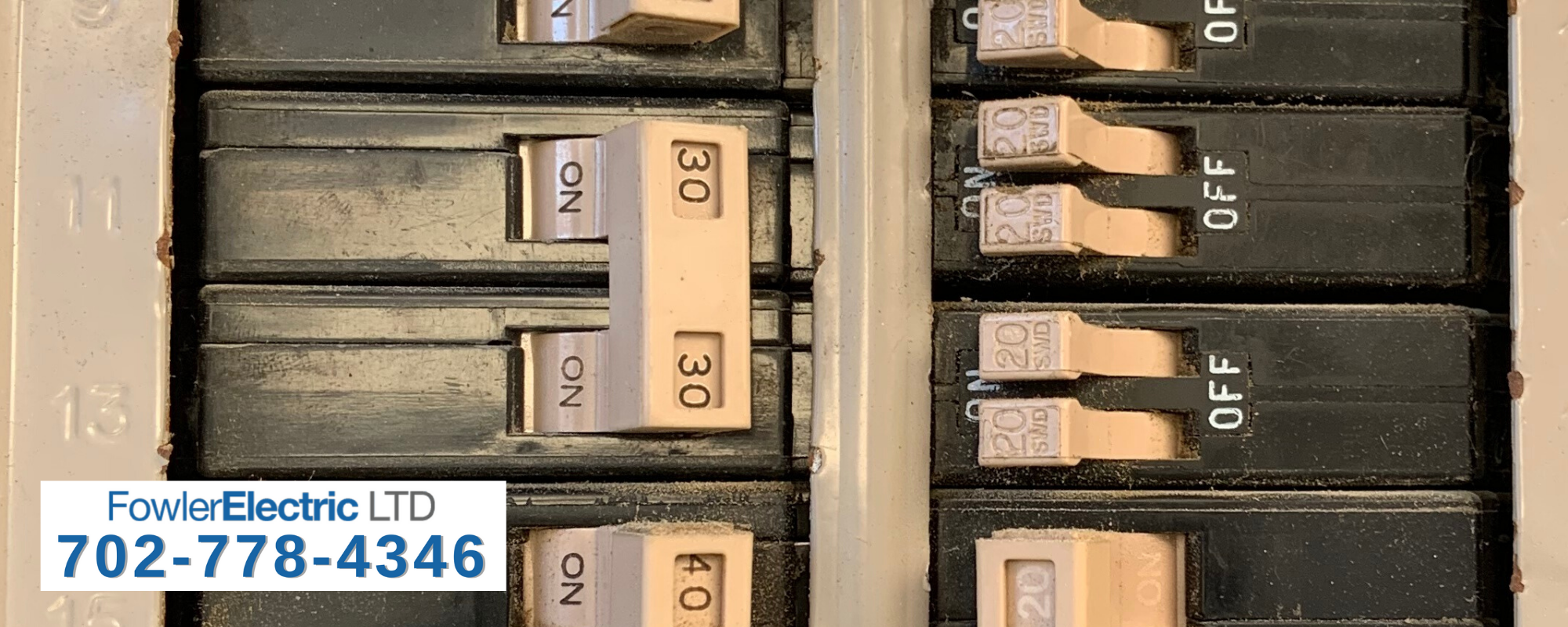The electrical panel in your home or business is equipped with different types of circuit breakers designed to make sure that your electrical system doesn’t arc, overheat or cause a fire. Circuit breakers are a critical component in providing the electrical service we all take for granted. There are 3 main types of breakers with different usages and capacities.
Standard Circuit Breakers
Standard circuit breakers are your all-purpose circuit breakers. They are used in both residential and commercial buildings alike. We rely on standard breakers to carry most electrical loads not subject to extreme conditions. Standard circuit breakers come in two types: single-pole and double-pole.
Single-Pole Breakers
A single-pole breaker protects a single energized wire. A typical single-pole breaker can handle 15 to 20 amps on a 120V circuit. Single-pole breakers come in 3 sizes: full, half and twin/tandem breakers (1-inch wide with two switches and control of 2 two circuits).

Double-Pole Breakers
A double-pole circuit breaker protects two energized wires and is capable of handling significantly more power. It can be used on a 120V or 240V circuit and can handle from 15 to 200 amps. Double-pole breakers consist of two single-pole breakers that share a trip mechanism and handle. Large appliances such as dryers and water heaters should be on double-pole breakers.
Ground Fault Breakers
Ground fault circuit interrupter (GFCI) breakers are designed to interrupt electrical power during overload scenarios. In other words, a short circuit or line-to-ground scenario can overload electrical circuits to the point of fire or explosion. A GFCI breaker prevents such dangerous conditions by tripping when it senses an electrical overload.
GFCI breakers work the same way that GFCI outlets work, except they protect the entire circuit and everything on it. GFCI breakers are recommended for circuits in which all or most of the outlets require GFCI protection, like patios and garages.
Related: GFCI Outlets: What You Should Know
Arc Fault Breakers
Arc fault circuit interrupters (AFCI) are circuit breakers specifically designed to cut power in the event of an arcing incident. Arcing occurs when electrical current takes an abnormal path due to something like a broken wire. This is a dangerous situation that can cause circuits to overheat and catch fire.
AFCI circuit breakers are commonly used in commercial and industrial environments. You might also use these at home in an attic, basement, or workshop.
AFCI breakers are extremely sensitive. They are more sensitive than standard circuit breakers, making them more likely to trip and shut down power even at the slightest amount of arcing. Less sensitive standard breakers may not trip until it’s too late.
Related: Do You Need a New Electrical Panel?
Changing Circuit Breakers at Home
We strongly recommend taking extreme care when changing your own circuit breakers at home. Make sure the electricity is off at its source before you open up the panel. Also make sure you have thoroughly done your research to ensure that the replacement breaker is the correct one for your needs.
If you’re not sure which breaker you need, or need help installing a new breaker, contact Las Vegas Electrician Fowler Electric. We’re here to handle all of your electric service needs, including circuit breaker replacement. Give us a call at 702-778-4346, email us, or set up an appointment for a free estimate below.

